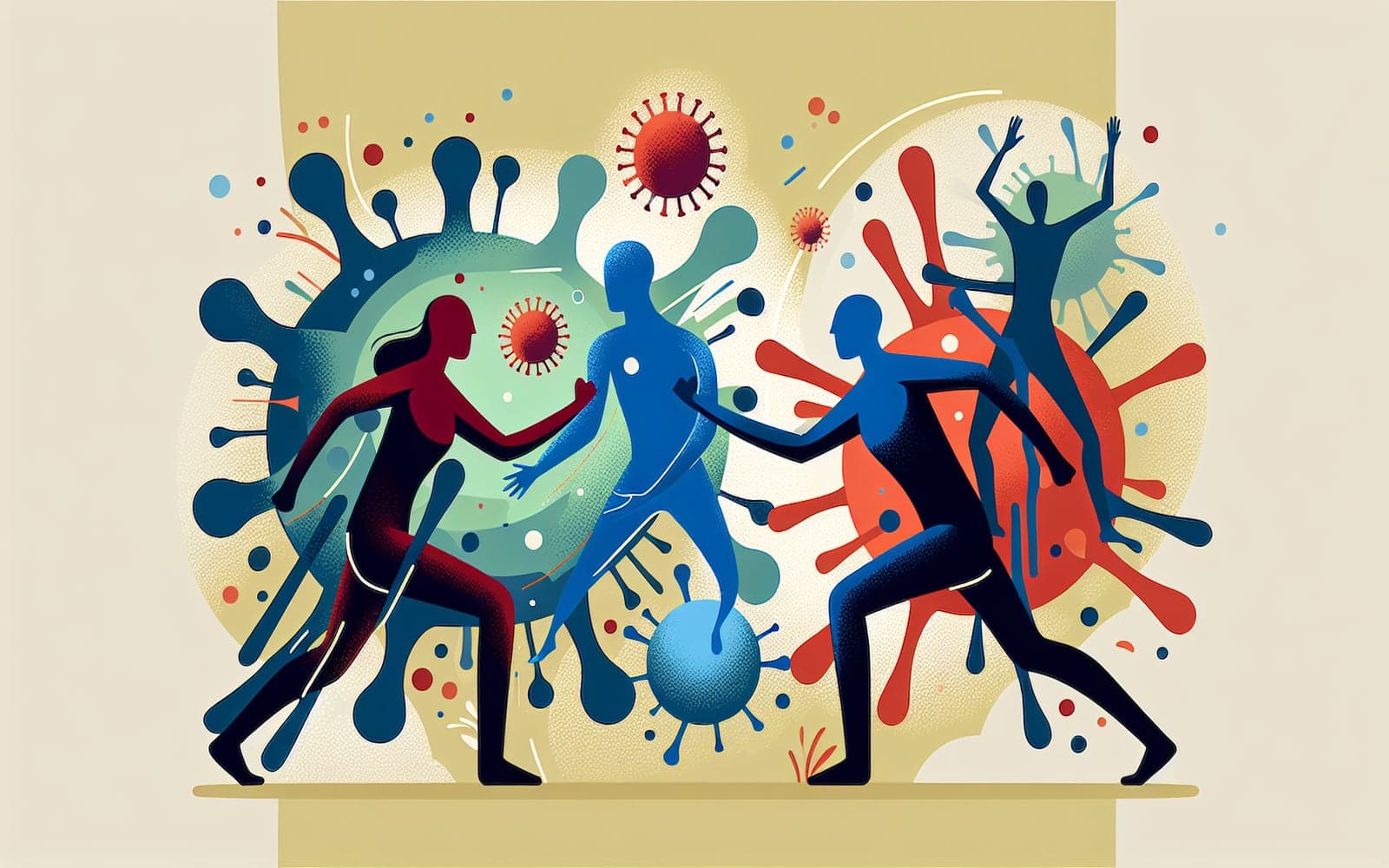What Causes Viral Arthritis and How Does It Affect You?
Published: Feb 16, 2024
Viral arthritis can be a painful condition caused by various viruses. Understanding its causes is key to managing and preventing it.
Contents
How Viruses Cause Joint Pain
Viruses can cause joint pain and arthritis through direct invasion of joint cells, immune complex formation, or immune system activation. The impact depends on factors such as age, sex, and genetic history. As viral infections evolve, certain viruses become more common causes of joint pain.
Spotlight on Parvovirus B19
Parvovirus B19 is a notable cause of viral arthritis, especially in adults. It presents with polyarthralgias and polyarthritis, often affecting small joints. The symptoms mimic conditions like rheumatoid arthritis and may last for weeks or months.

Alphaviruses: A Tropical Threat
Alphaviruses like chikungunya have gained prominence due to global travel and climate change. They cause arthritis through immune reactions and persistent viruses in synovial macrophages. Symptoms can resolve in months but sometimes lead to chronic arthritis.
Frequently Asked Questions
Viral arthritis is joint inflammation caused by a virus.
Common culprits include parvovirus B19, alphaviruses, and hepatitis viruses.
Chronic cases are rare, but some viruses like chikungunya can lead to it.
Key Takeaways
Understanding viral causes of arthritis helps in timely diagnosis and treatment.
Wondering if a virus could be causing your joint pain? Talk to Doctronic today!Related Articles
References
Khasnis AA, Schoen RT, Calabrese LH. Emerging viral infections in rheumatic diseases. Semin Arthritis Rheum 2011; 41:236.
Vassilopoulous D, Calabrese LH. Virally associated arthritis 2008: clinical, epidemiologic, and pathophysiologic considerations. Arthritis Res Ther 2008; 10.
Always discuss health information with your healthcare provider.

